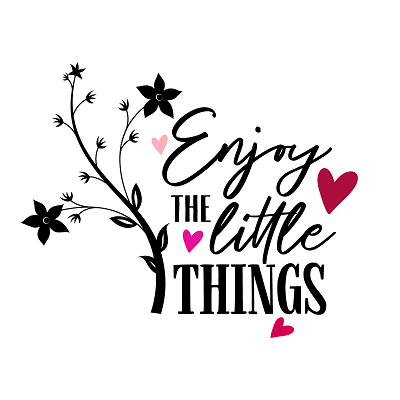 By now, most people will have heard of the concept of creating a balanced life. However, many people still struggle with it because they aren’t sure what a balanced life really means. Or, they might have some notion but haven’t got the right strategies, tactics and priorities straight.
By now, most people will have heard of the concept of creating a balanced life. However, many people still struggle with it because they aren’t sure what a balanced life really means. Or, they might have some notion but haven’t got the right strategies, tactics and priorities straight.
In this report, we will define what a balanced life is and practical action steps you can take to live life more holistically.
What is a Balanced Life?
A balanced life is all about taking care of yourself in relation to body, mind and spirit. Balanced living means respecting yourself enough to care for yourself as needed. This can be through developing good work and health habits, making time for yourself, paying attention to stress management, and cherishing the relationships you have with friends, family and colleagues.
We’re all familiar by now with the negative effects of stress on our bodies such as indigestion, back ache, headache, and so on. A lack of stress will therefore promote health and well-being. Many people get stuck in the trap of caring for others most of the time. However, the truth is that you can’t take care of others effectively if you don’t first take care of yourself.
Part of taking care of yourself is through maintaining healthy, positive relationships. If you don’t have at least a couple of people you could turn to for help when the going gets tough, you need to cultivate more balanced relationships as well.
A balanced life is all about setting priorities and sticking to them. That is not to say that every single day has to be completely balanced, but that you recognize something is being sacrificed in favor of a particular goal, and you’ll restore the balance as soon as you can.
For example, imagine you decided to go back to college to finish your degree in order to get a promotion at work or a better paying job with more benefits. The hours you would have to study each week until you completed your degree would have to be reallocated from your usual daily routine.
You could sacrifice some sleep, but that can only last for so long before you start suffering from ill health. You might have to sacrifice some time with your children, but that can be difficult to explain to a toddler. You could also sacrifice time spent with family and friends, or your partner.
Discussing what would be involved in this life-changing decision can help people all be on the same page and not cause resentment, but it is important to understand from the outset that your work-life balance is going to change for X number of semesters until you graduate.
It is also important to note that not everyone might agree with your decision, which means it can be a balancing act within your relationships to keep everyone feeling happy and valued. Let’s look at how to nurture your relationships in the next section.
How to Nurture Your Relationships
It’s all too easy to start neglecting relationships when we get busy at work or face other challenges such as starting our own business or going back to college. However, relationships of all sorts are an essential part of a balanced life. No man (or woman) is an island.
Relationships help relieve stress, enable us to think more positively, and often provide the motivation to make the choices we do in life.
When we hear the word “relationship,” we tend to think of romance and a spouse or someone we are dating. However, while romance is important, cherishing long-standing family connections and close friendships can also provide balance in our lives without a whole host of (unfulfilled) expectations.
Family
Family love should be unconditional. You care about each other and support each other no matter what the issues. Many people often find their mother or a sibling is their best friend they can confide in, who will back them up no matter what.
While it is true that some people have dysfunctional families which trigger negativity and stress, it is also true that as we get older, we do have choices about how we wish to deal with our families. Distancing yourself from them might seem a good idea, but it also might be cutting yourself off from the very relationships that challenge you the most and help you grow.
Friends
If you’re like many people, you have some close friends you’ve known for years who have seen you through the good times and bad. Having a group of positive-minded people to discuss things with and share enjoyable activities with can help you rest and recharge your batteries so you can stay in balance.
Life Partners
Life partners give us love and help us feel valued and special when the relationship is going well. When it is strained, it can cause all sorts of issues that can even spill over into other areas of your life such as work, causing you to be distracted and not put in your best effort.
When you are living together, it can be all too easy to start taking each other for granted, until it is too late. A classic example would be the workaholic spouse who comes home at all hours, skips family dinners and the children’s sports days and concerts, and then wonders why his/her partner is filing for divorce.
The truth is that all relationships need to be cultivated like a delicate plant. You’ve already done the digging and planted the seed, but now you have to water it, give it food and sunlight, and generally show that you care what happens to it.
Of course, it does take two to maintain a good relationship. Sometimes you might feel you are doing all the hard work to keep things going and the other person is not doing their fair share. In that case, there is a perceived imbalance in the relationship that needs to be resolved.
Tips on How to Cherish Relationships
How can you cherish your relationships and keep them in balance? Here are some suggestions.
- Take time to share every day. A few minutes of focused time each day can help keep the gas tank of a relationship full.
- Share important information about your life with those who need to know. If you’re really stressed at work or are struggling to keep the checkbook balanced, confide the issue in someone who you trust, who can also contribute positive suggestions. Use them as a sounding board to come up with some action steps so you don’t feel trapped or waste all your time worrying when you could be doing something to improve your situation.
- Be polite. Be polite to everyone you care about. This might sound like a strange thing in the context of marriage, but studies have shown that partners who feel valued and respected are much more likely to give their relationship a fighting chance when times do get tough, as they will sooner or later.
- Be honest but also considerate. There are ways to tell the truth that are constructive, and ways that are destructive. Being honest is important because it is really the only way to be true to yourself and live a balanced life. It is also the best way to ensure that people are honest with you, so you can maintain a meaningful relationship for years to come.
- Learn to laugh more. Learn to laugh at yourself more and not take things too seriously. Take the time to laugh with friends and family to reduce stress and get more fun out of life.
- Learn to support your partner emotionally. Marriage counselor Gary Chapman has developed the theory of the Five Love Languages, in which he explains that everyone has a primary and secondary love language. No matter how loving you think you are being, the other person will never feel loved if their love language doesn’t match yours. Take the quiz at 5 Love Languages.com and share your results with your partner. It could just open up a whole new world of life balance and intimacy.
- Romance and sex. It’s great to feel like you are best friends with your partner and you really have someone in your corner, but it is also important to cultivate romance and sex because otherwise, it often gets pushed down the list of priorities to the point where it’s the last thing you think of. Once children come along, sex can disappear completely. Making sure you have a date night and taking time for romance can help keep the spark alive. And again, couples who are happy with their sex lives will often be more willing to work through any issues as compared with those who have an empty romance fuel tank.
- Share your goals and dreams. While it is true you are in a romantic relationship with someone, you don’t have to be clones of each other. You’re allowed to dream of a better job, bigger house, and so on. The important thing is to discuss it so everyone is on the same page about it being a priority.
- Be able to forgive. There will come a time in every relationship, marital or otherwise, where we will have to forgive the other person for something they have done, or failed to do. It can be difficult, especially if the person has let you down in a big way, such as being unfaithful or “borrowing” money from you but clearly having no intention of ever paying it back. The important thing to remember is that forgiveness is a choice. And if you let go of grudges, your arms won’t be so full of baggage and you’ll be able to embrace all new possibilities.
- Admit mistakes. No one is perfect. Admit your mistakes and apologize. This will create an atmosphere in which others will be willing to open up and do the same.
As we can see from these examples, balanced, happy relationships don’t just happen by chance, but are cultivated a little bit each day. The key to success in all these cases is to get your priorities right. Let’s look at this in more detail in the next section.
Getting Your Priorities Right
In order to achieve a balanced life, we need to juggle competing priorities. Yes, work is important because it pays the bills and hopefully also gives us the satisfaction of following a career we love and achieving important things within it. However, the extreme version of it as a priority is workaholism, in which the balance swings towards your career and away from friends, family and loved ones.
As many women discover, they work hard for the first few years in the workplace, but once they are married and start a family, the priority becomes the newborn, not the career. These days it is possible to be a work-at-home parent, thanks to the internet and all sorts of opportunities for entrepreneurship, but this requires a fixed set of priorities which need to be supported by others in the person’s life.
You can’t reason with a sick child, but you can make it clear to friends and neighbors that just because you are working from home does not mean you have a lot of free time to do them favors, run errands, or mind their children for free.
Friendships are always important, but they tend to take a back seat to work or family. So unless you prioritize your friendships with regular calls, emails and get-togethers, things could start to slip.
Then there are your own priorities in terms of overall well-being. Looking after yourself properly is the only way to get through all the priorities on your to-do list. You can’t care for others if you don’t first tend to your own needs.
Smart self-care measures you need to make time for every day include:
- Diet
- Exercise
- Getting enough sleep
- Preventive measures like vaccinations to prevent illness
- Reading up on important health topics
- Stress management
- And so on
If you don’t try to keep these elements in balance, you will be subjecting your body to a lot of stress, and wear and tear. For example, if you are overweight by even a few pounds, the stress on your joints (such as your knees) can be considerable. Studies have also shown that fat is not an inert substance, but rather, it releases all sorts of harmful chemicals into our bloodstreams.
So while it may seem selfish to spend 30 minutes working out each day, every exercise session is actually benefitting not just you, but also the people you care for.
The work-personal life balance is the one many of us find the trickiest. Let’s look next at why this might be the case.
The Importance of Doing Meaningful Work
Most people are eager to do meaningful work that gives them satisfaction and a sense of accomplishment. While it is true that some people just take whatever job they can find in order to pay the bills, many others choose to follow a career.
When we are young, we are asked what we want to be when we grow up. Some of us even pursue our dream careers, doing well in high school and often going on to college. At college, we take classes that serve as stepping stones to the new career. When we graduate, many of us then seek employment in that same area.
Sometimes people make a mistake and realize that the career they have chosen isn’t right for them. Then it becomes a question of whether or not they want to stick with what they are doing anyway because the money is coming in, or try something completely new.
The decision will often rest on how meaningful the person feels their work is. We all need to have a purpose on the planet. In Japan, this is referred to as Ikigai, and has become a popular concept people can use to find meaning and balance in their lives.
Your Ikigai can help you get out of bed in the morning bursting with energy because you know you are going to make a real contribution in society. Many people who have made their fortunes on Wall Street as stock brokers give up that high-powered career to become teachers, nurses and doctors. They know there is more to life than just making money.
Similarly, many people work for charities and non-profits, and volunteer at local animal shelters and so on because they know there is more to life than a big salary and working 9 to 5.
Studies have shown that those who feel their work makes a genuine difference are much more likely to focus and concentrate on doing a good job. The majority work more than they have to and are also more loyal to the company.
If you’ve been struggling with either workaholism, or a lack of motivation, it might be time to evaluate what your Ikigai is so you can start living a more balanced life.
Final Thoughts
Living a balanced life isn’t easy, but with all we know about how to do so successfully, there is really no reason why you can’t take action to achieve a better balance. Set your priorities, value your relationship, and follow through. Then see what a difference it makes to your health and happiness.


